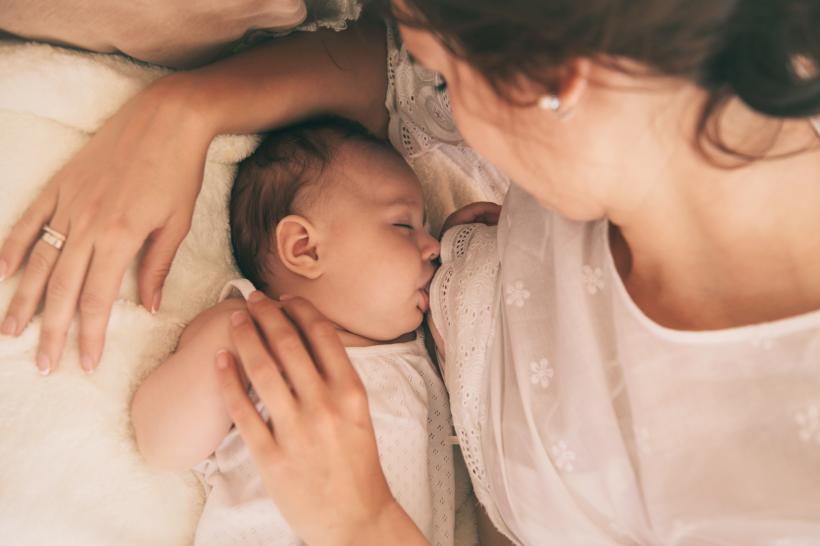
CN: Infant loss
From the moment I found out I was pregnant, I knew I wanted to breastfeed.
In order to do my best to achieve this goal, I attend Leche League Meetings and read many books. Despite my research, nothing could prepare me for the challenges I would face on the journey of motherhood.
My first month of motherhood was filled with curveballs. Between health complications and a fluctuating milk supply, I was more than overwhelmed. On top of everything else, my son did not learn to latch until he was about a month old. Despite all the odds, we kept fighting, and a year later we are still going strong. My experiences made me a strong breastfeeding advocate. Like many who overcame the challenges and stigma, I fed my baby with pride and did my best to encourage any mothers who were struggling with breastfeeding by providing them with support and information. If I could do it, anyone could. Or so I thought.
Recently, I came across a story that broke my heart and caused me think deeply about the message we send mothers when we encourage breastfeeding as the superior method for feeding our babies.
Early in March, Jillian Johnson shared the heartbreaking story of how her 19-day-old son died of starvation 5 years ago. In February of 2012, Johnson gave birth to her son, Landon, in a hospital that emphasized exclusive breastfeeding. Within this hospital, a prescription was required to obtain formula. She revealed how she mistook the symptoms of starvation for those of cluster feeding. Less than two days after being released from the hospital, Landon went into a dehydration caused cardiac arrest and was taken off life support 15 days later.
Upon reading this story I was grief stuck. I had experienced the stress that comes with the pressure to breastfeed first hand, and I couldn’t help but reflect on the reproductive movement and an issue that it frequently overlooked: a woman's choice NOT to breastfeed.
"In the last two years, I have spoken to too many mothers who felt their effectiveness at mothering was defined by their method of feeding."
The women's reproductive movement fights for our choice to become parents. But have we done enough to let people who want to breastfeed know that if their mental health or baby's life is at risk, there is nothing wrong with make the decision not to breastfeed? There are more than enough pressures that negatively affect new moms. Shouldn’t we do more to educate mothers on risk factors for breastfeeding?
When breastfeeding is discussed, most people highlight the rapid weight loss that is caused by the increased levels of prolactin combined with the amount of calories being burned. But breastfeeding is much more than a method for postpartum weight loss. Breastfeeding comes with a multitude of other factors. For some, the fluctuating hormones will result in mood swings, vaginal dryness and hot flashes just to name a few issues. When you combine those body changes with new motherhood and fluctuations in milk supply, it becomes clear that breastfeeding must be a choice. And that is before taking into consideration that many moms are expected to return to work before even having time to establish a solid milk supply or build a relationship with their child. There are far too many stressors involved to force breastfeeding on new mothers. And far too many challenges involved to continue to pressure women who are dealing with a multitude of other issues into choosing one style of feeding. In the last two years, I have spoken to too many mothers who felt their effectiveness at mothering was defined by their method of feeding.
My son is nearly 14 months old and we are well on our way to making our two year nursing goal. I know that despite difficulty, breastfeeding was the right choice for my family. But maybe nursing isn't for everyone. I will always advocate for breastfeeding. As a Black woman of color, there is still a great deal of cultural stigma attached to breastfeeding in my community. However, Landon’s story made it clear that I must emphasize a holistic method of breastfeeding advocation and help mothers identify whether or not it is the right choice for them and their families.
Is breast really best if the pressure is beginning to cost babies' lives?
We need to do better, the lives of mothers and babies are at stake.







![Photo By Dr. François S. Clemmons [CC BY-SA 4.0 (https://creativecommons.org/licenses/by-sa/4.0)], from Wikimedia Commons](/sites/default/files/styles/profile/public/images/article/2019-06/Mr.%2520Rogers%2520%25281%2529.png?itok=LLdrwTAP)
